Keynote speaker at the KOLITA conference by Atma Jaya university
I was honored to be invited as one of the keynote speakers at the 23rd Annual Linguistics Conference of Atma Jaya (KOLITA). At this hybrid conference attended by Indonesian linguists from all over the archipelago, I presented a talk entitled 'Introducing Saparua: Documentation and Description.
Why introducing Saparua? Because this language is understudied. So, many people, even scholars, may not have heard about it. My talk also discussed language documentation, for a somewhat similar reason. Even though language documentation has been strongly established as a subfield of linguistics for more than two decades, which differs substantially from descriptive linguistics, it is still considered a premature field of linguistics in Indonesia. Hence, many linguists are not quite familiar with the field. So I took the opportunity to "introduce" language documentation as well.
I then narrowed down my talk to the documentation project on the language funded by the Endangered Languages Documentation Programme (ELDP), Germany, in collaboration with my colleague and friend, Leah Pappas from University of Hawai'i at Manoa. I underscored the importance of applying a collaborative model where both researchers and the community work side by side to document Saparua. My next slides presented our study on the language attitudes of the Saparua speakers in which we offered a more nuanced approach to reveal both overt and covert attitudes. Finally, I presented our preliminary description of the language, covering its phonetics, morphology, and syntax.
It was a great conference, and I was glad I could share my work with linguists from all over the country.
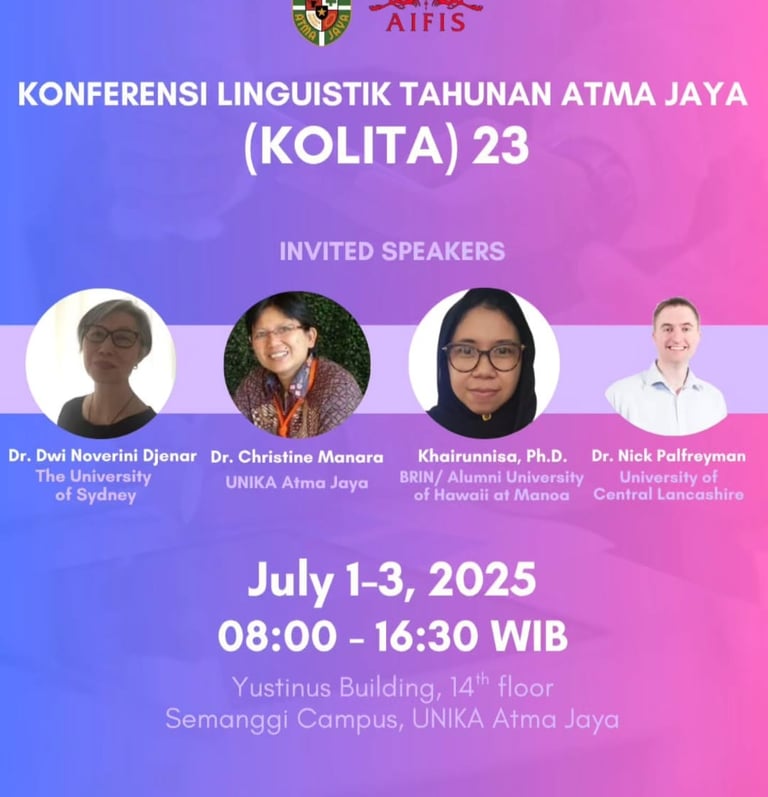

Keynote speech at an international conference by National Research and Innovation Agency (BRIN)
It was a privilege for me to be trusted as a keynote speaker, along with a range of prominent international scholars, at the 2nd ICLLP by my own affiliation, the National Research and Innovation Agency (BRIN).
The nature of my talk was, to some extent, different from my usual talk, as well as from the talks by the other keynote speakers. I took the stage to offer a critical discussion on the perpetuation of colonialism in the language documentation practice, including in Indonesia. I first started by discussing the impact of colonialism on language endangerment and extinction. I then continued with identifying core principles of colonialsm that were still applied in many areas, including in language documentation. Some examples included forcing Western standards when working with indigenous communities, blaming the community for giving up their language by dismissing the underlying and systemic problems, and owning total control of a documentation project, providing no agency to the speakers. Toward the end, I proposed a collaborative language documentation model as a form of decolonization movement in language.
I'd like to give this kind of talk in the future, for we need more than just theoretical and empirical discussions, when power imbalance still persists, and our languages are dying.
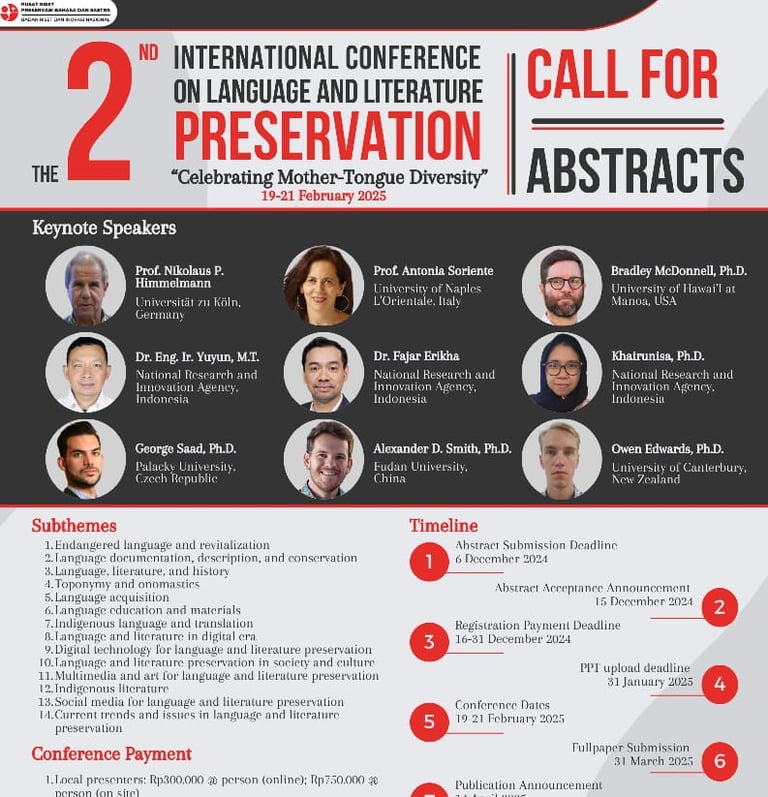

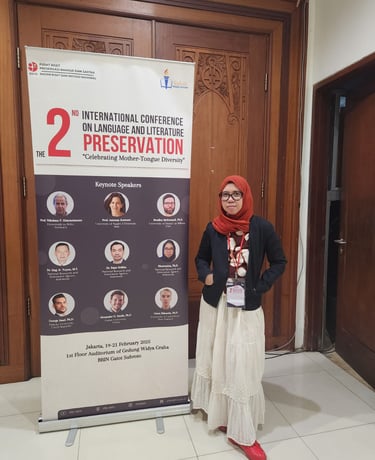

Trainer at an advanced workshop on language documentation by BRIN
I had a privilege to serve as a trainer at an advanced language documentation training held by my own affiliation, BRIN. In the training, I shared my knowledge and skills in documenting conversation as well as how to use conversational data for language analysis. I first presented step by step best practices in documenting conversation then proceeded with possible linguistic analysis of such natural speech. I showed for instance, how conversational data could be analyzed by using variationist sociolinguistics, pragmatics, and morphosyntax. I provided examples from my published paper on variation of pronominal forms and my dissertation on Sasak.
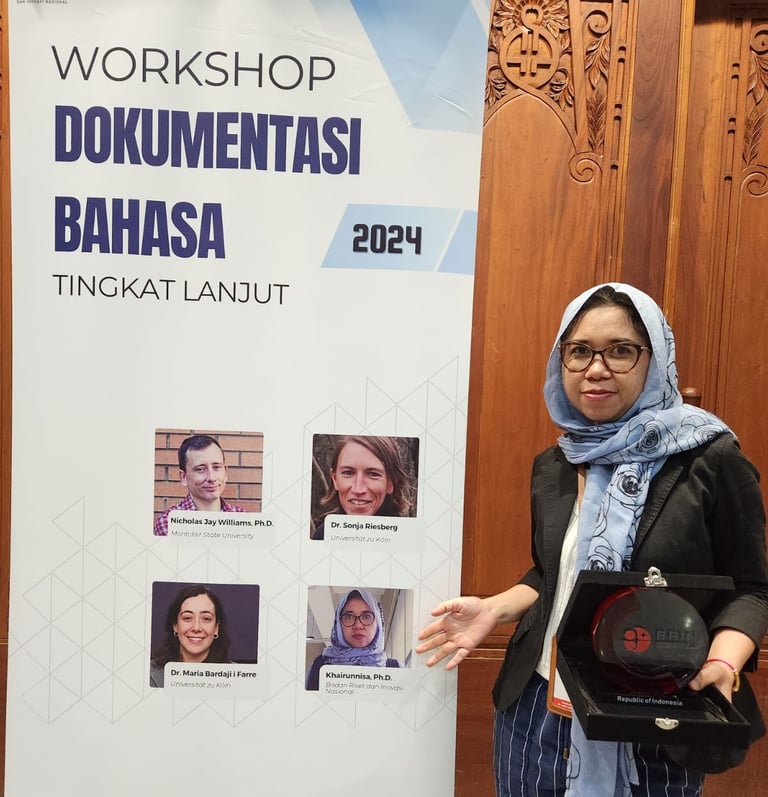

International conferences

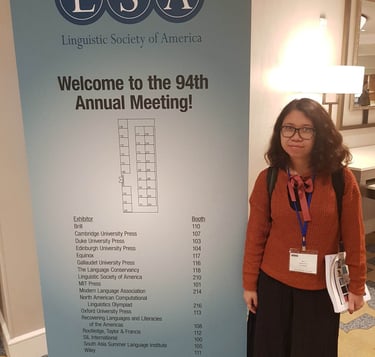
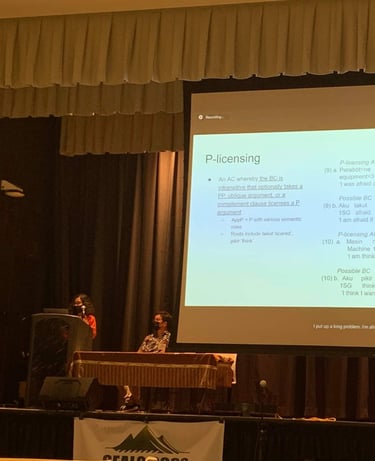

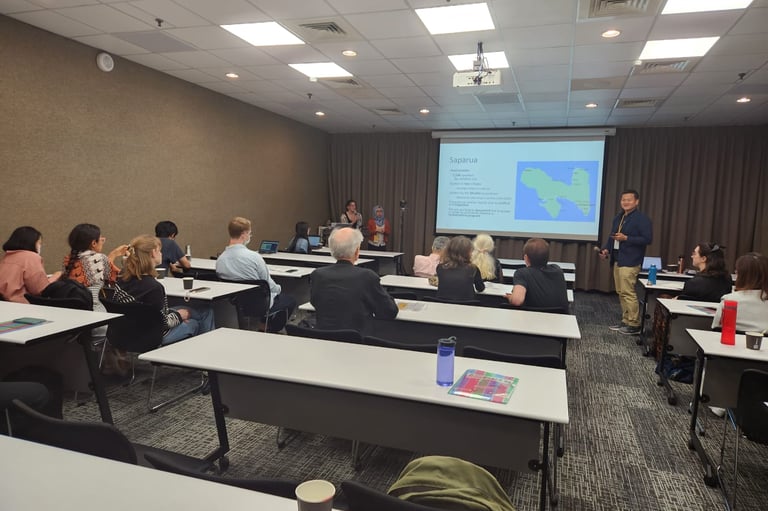

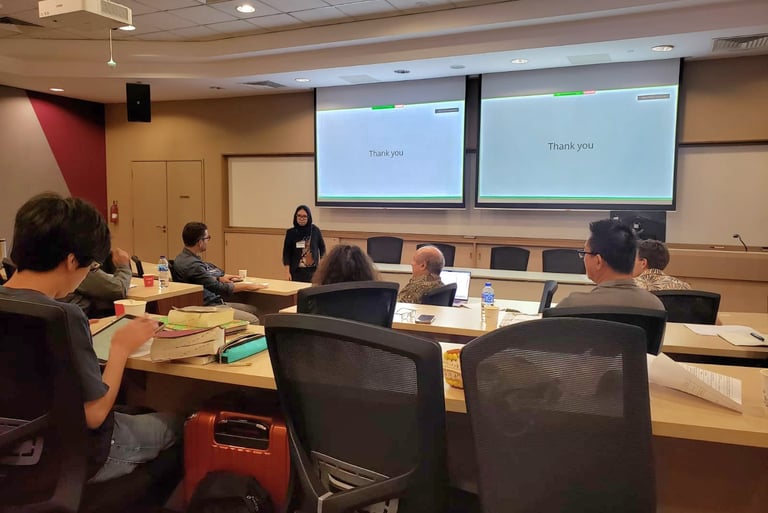

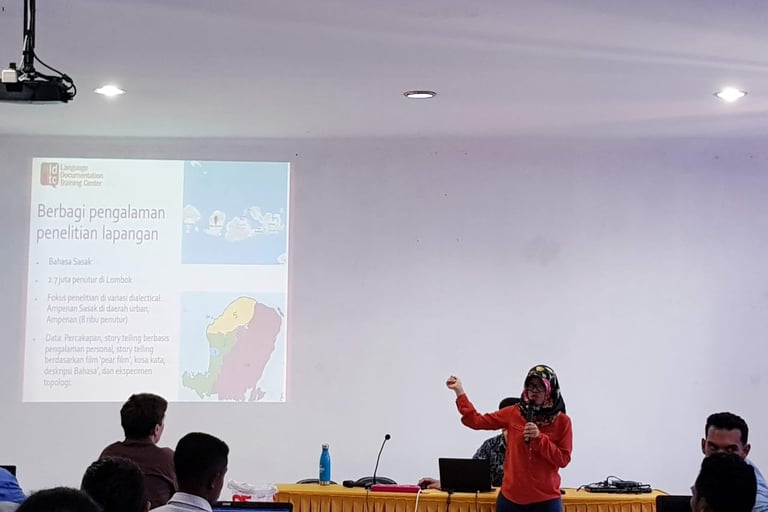

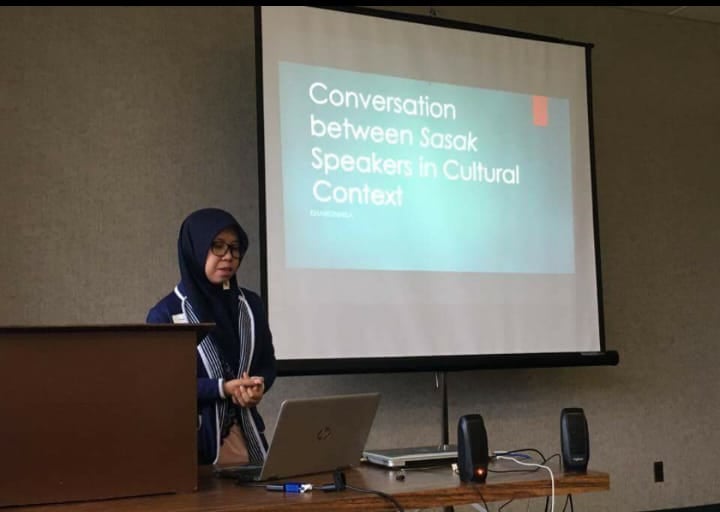

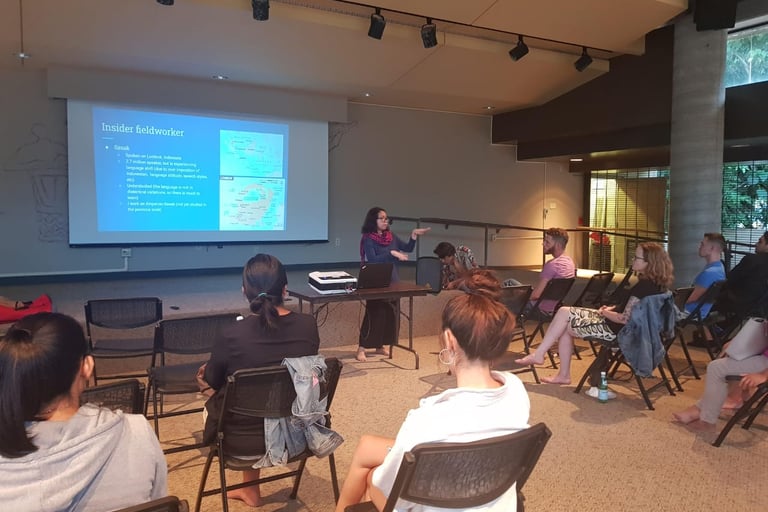

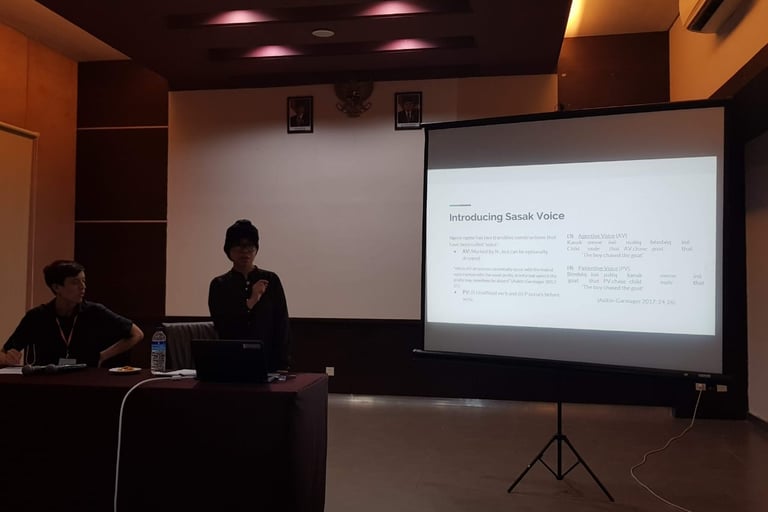

Over the course of eight years, I have presented my work on Linguistics at various international conferences, including in the USA, Singapore, Taiwan, and Indonesia. I have also actively provided language documentation training in several regions of Indonesia such as Jakarta, East Nusa Tenggara, and Maluku.